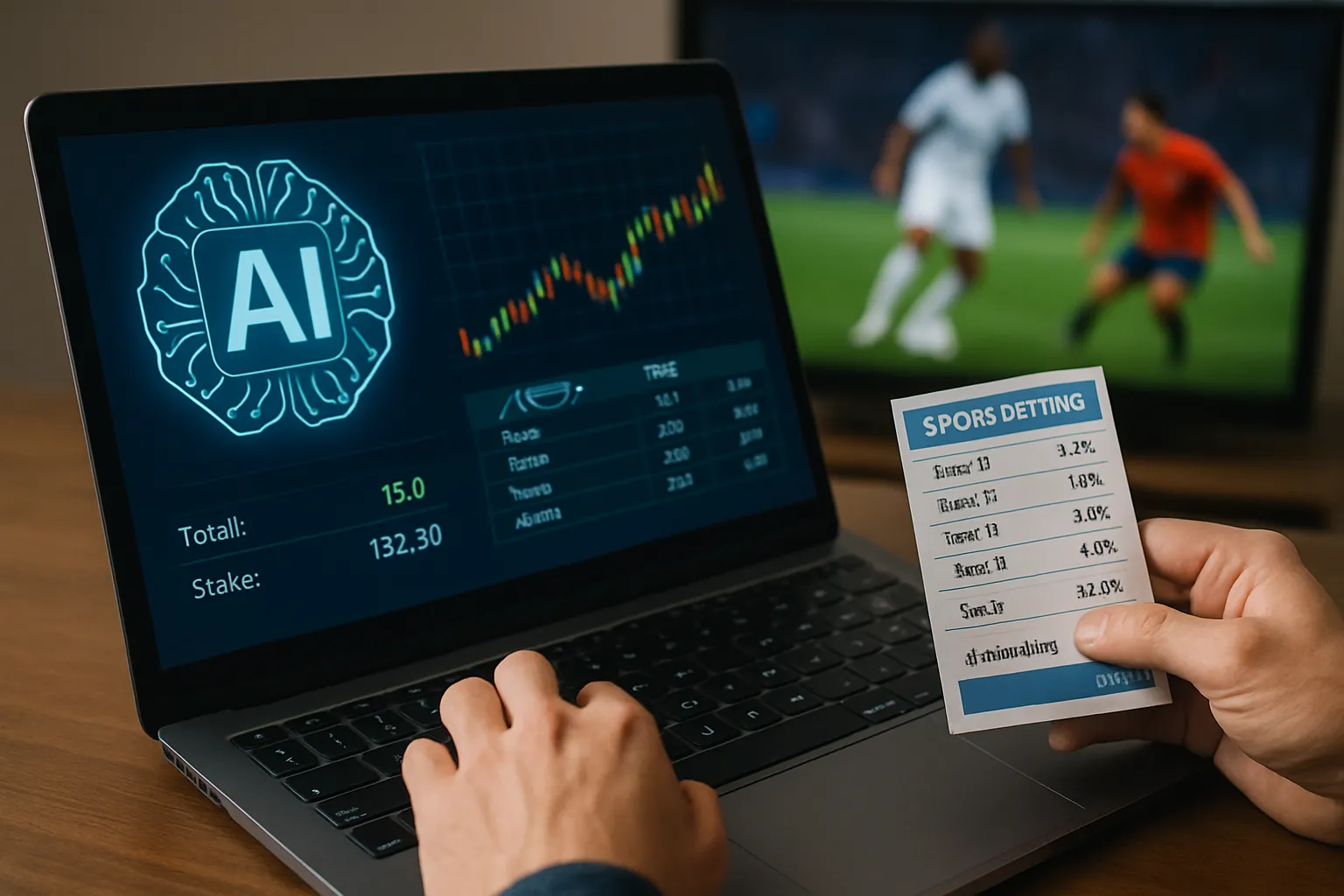Artificial intelligence has quickly become one of the most talked-about innovations in nearly every industry. From healthcare to finance, AI-driven algorithms are shaping decision-making processes and predicting outcomes with astonishing accuracy. Naturally, the sports betting world has turned its attention to AI, with the hope that machines might one day outperform human judgment in forecasting match results. But can AI really predict outcomes in sports betting, or is this expectation still a step too far?
The Rise of AI in Sports Analytics
AI thrives on data, and sports generate mountains of it. Every pass, every shot, every injury, and even weather conditions feed into predictive models. Betting companies and private tipsters are now harnessing machine learning to analyze not just historical statistics, but also live, in-game data. The idea is simple: the more data AI can digest, the better it should become at recognizing patterns that humans often miss.
This approach mirrors the growth of alternative betting platforms such as casinos not on gamstop, where players are drawn to experiences that promise more freedom and innovation compared to traditional options. Just as these casinos appeal to players seeking different rules and opportunities, AI appeals to bettors who want sharper insights beyond conventional odds.
Can AI Outperform Human Intuition?
Humans bring intuition, emotional reading, and contextual understanding to betting decisions. For instance, a bettor might sense that a team under pressure is likely to rise to the occasion, even if statistics suggest otherwise. AI, in contrast, has no bias—it processes numbers without emotion.
This is both a strength and a weakness. While AI can sift through thousands of variables without fatigue, it cannot fully grasp the psychological factors that often define sporting contests. Team morale, player motivation, or locker room disputes don’t always show up in data, yet they influence results in ways AI may overlook.
The sweet spot may lie in combining AI with human insight, using machine learning for statistical grounding while relying on intuition for context.
Real-World Examples of AI in Betting
Some AI platforms have shown promise by accurately predicting certain outcomes, particularly in sports like baseball and tennis, where data is abundant and play is relatively structured. In these contexts, machine learning models can forecast likely scenarios with impressive precision.
In football or basketball, however, unpredictability is higher. A single referee decision, unexpected injury, or moment of brilliance can swing results in ways that no algorithm could have foreseen. Bettors relying solely on AI may find themselves misled by statistical probability when human drama changes the game.
The Role of Live Betting and AI
One of the most exciting uses of AI is in live betting. Algorithms can monitor games in real time, updating odds as situations unfold. This allows betting platforms to offer dynamic markets that react instantly to the action on the field. For bettors, it provides a chance to identify opportunities faster than human oddsmakers.
Still, there’s an important limitation—AI may react quickly, but it is not always interpreting the deeper context. A red card, for example, will trigger a statistical shift in probabilities, but AI cannot always assess the psychological shock that such an event might have on the opposing team.
The Limitations of AI Predictions
No matter how advanced AI becomes, sports will always contain elements of chaos. Unexpected weather, human error, crowd influence, and pure luck are integral to the drama of competition. These variables cannot be perfectly modeled. AI can give probabilities, but it cannot give certainties.
Moreover, bookmakers themselves use AI to adjust their odds, meaning bettors are often working with the same information. If everyone has access to the same data-driven insights, the advantage may disappear quickly.
The Future of AI in Betting
Looking ahead, AI is likely to play an even greater role in sports betting. Advances in real-time data collection, wearable technology, and deep learning will improve its accuracy. We may see AI predicting player fatigue, injury risks, or tactical adjustments before they become obvious to the human eye.
However, betting will remain a blend of art and science. AI can tilt probabilities, but it cannot fully control the unpredictable nature of sports. Bettors who treat AI as a helpful tool rather than a guaranteed path to success are most likely to benefit.
Final Thoughts
AI has already started transforming sports betting, and its role will only grow in the coming decade. While it can process data faster and more thoroughly than humans, it cannot account for every nuance of live sport. For that reason, AI should be seen not as a replacement for human judgment but as a powerful partner.
So, can AI truly predict outcomes in sports betting? The answer is yes—up to a point. It can identify trends, highlight opportunities, and reduce risk, but it will never eliminate uncertainty. And perhaps that’s the beauty of sports: no matter how much data we analyze, the thrill lies in the fact that anything can happen.








